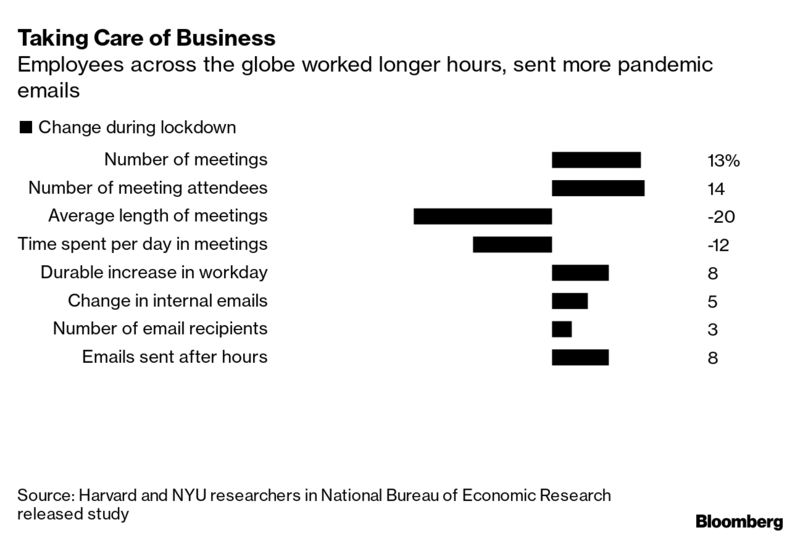The Pandemic Workday Is 48 Minutes Longer and Has More Meetings
- The Tech Platform

- Aug 6, 2020
- 2 min read
A study of 3.1 million workers around the world found an uptick in emailing, too.
We log longer hours. We attend more meetings with more people. And, we send more emails.
From New York City to Tel Aviv, the telecommuting revolution has meant a lot more work, according to a study of 3.1 million people at more than 21,000 companies across 16 cities in North America, Europe and the Middle East.
The researchers compared employee behavior over two 8 week periods before and after Covid-19 lockdowns. Looking at email and meeting meta-data, the group calculated the workday lasted 48.5 minutes longer, the number of meetings increased about 13% and people sent an average of 1.4 more emails per day to their colleagues.
In a few cities, such as Los Angeles and Chicago, the average workday length returned to its pre-pandemic levels. But longer days persisted in New York City, San Jose and most of Europe well into May.
“People have adjusted their work patterns,” said Jeff Polzer, a professor in the organizational behavior department at Harvard Business School, one of the study’s five co-authors.
During the two month time frame, there was one part of working that did improve: Those additional meetings were shorter, according to the analysis by researchers at Harvard Business School and New York University. The study was published by the National Bureau of Economic Relations this July.
Companies are studying the impact of the forced work-from-home experiment on productivity, morale, culture, costs and other factors to determine how they might modify their practices going forward.
Other analyses looking at VPN data found people were putting in three additional hours in the U.S. and logging in at odd hours. People who spoke to Bloomberg News attributed their harried schedules to child care demands, blurring boundaries between work and home, and the stresses of an economic recession.
The group from Harvard and NYU said their research represents one of the largest studies so far and included data from 16 metropolitan areas.
Polzer from Harvard says more research is needed to see if habits have changed permanently, but he doesn't expect behavior to return to pre-pandemic levels anytime soon. “It’s not like we’re going back to normal times,” he said.
Source: paper.li





Comments